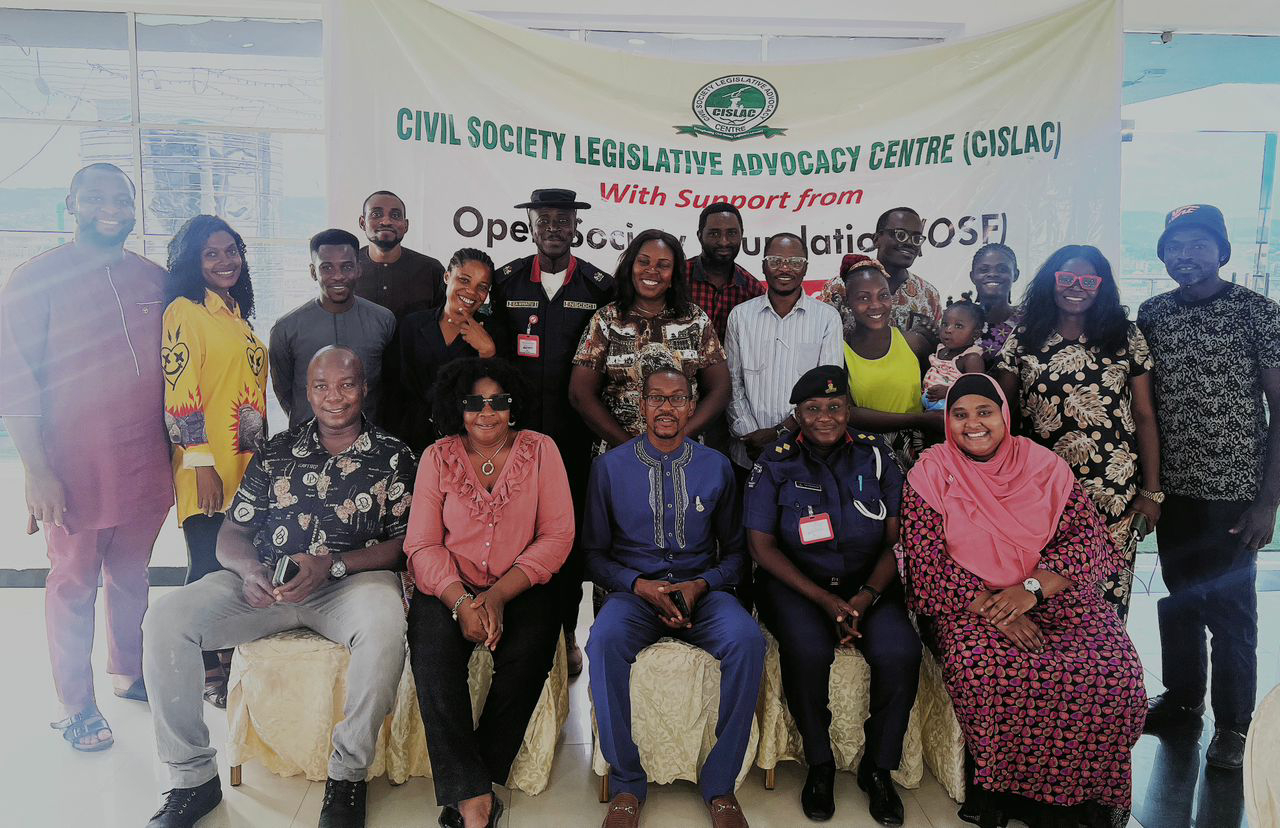BY CHIKA OKEKE, Abuja
Stakeholders at the second edition of Community Security Architecture Dialogue on Early Warning and Early Response in Enugu recently.
As part of measures to guard against insecurity, technocrats in the critical sectors have harped on the need for Nigerians to utilise the national emergency toll-free number –112–for timely response to threat signals.
This, they believed would strengthen local institutions to respond to security threats and expand community-based early warning and early response network.
News Rider reports that emergency numbers are designated telephone numbers that provide direct access to emergency services such as medical, accidents or threats to personal safety.
These were contained in a communique issued at the end of the second edition of 'Community Security Architecture Dialogue on Early Warning and Early Response', organised by Civil Society Legislative Advocacy Centre /Transparency International in Nigeria (CISLAC/TI-Nigeria), with support from Open Society Foundation Africa (OSF-Africa) in Enugu State recently.
It was jointly signed by the Executive Director of CISLAC/TI-Nigeria), Mr Auwal Ibrahim Musa; representative of Entrepreneurship Initiative for Africa, Emmanuel Acha and his counterpart in Felicitas Women Advocacy Development and Leadership, Kelechukwu Felicia Amaka.
The dialogue attracted 20 participants from community response networks, security agencies, civil society and local government officials, as well as community observers that analysed early warning information and response efforts.
To bridge the gap, the Nigerian Army had in 2022, enjoined the citizens to dial a short code: 193 or call the following emergency lines such as 07017222225, 09060005290, 08099900131 or 08077444303, to provide useful information on security lapses.
The participants requested for a robust database and appropriate networks to facilitate proactive and timely response to threat signals.
"Embrace practical steps in the establishment of effective community-based early warning and early response system while considering some fundamental measures like preparedness, participatory situation analysis, observation and monitoring, communication and dissemination, preparation for response, and follow-up actions.
"Leverage indigenous knowledge and initiatives in information dissemination on a potential threat, meant to elicit early response.
"Build community conflict-sensitivity through continuous capacity building for community-based actors to efficiently respond to threat signals and minimise tension," the communique added.
The participants listed poor resourcing mechanisms, mistrust, inaccurate information, lack of technology and infrastructure, vested interest and gender disparity as barriers to a robust community-based early warning system.
They highlighted core stakeholders in community early warning and early response system as local residents, youth, informal policing outfits, local leaders, community based organisations, health professionals, academia, statutory security actors, state authorities and international organisations.

Comments
Post a Comment